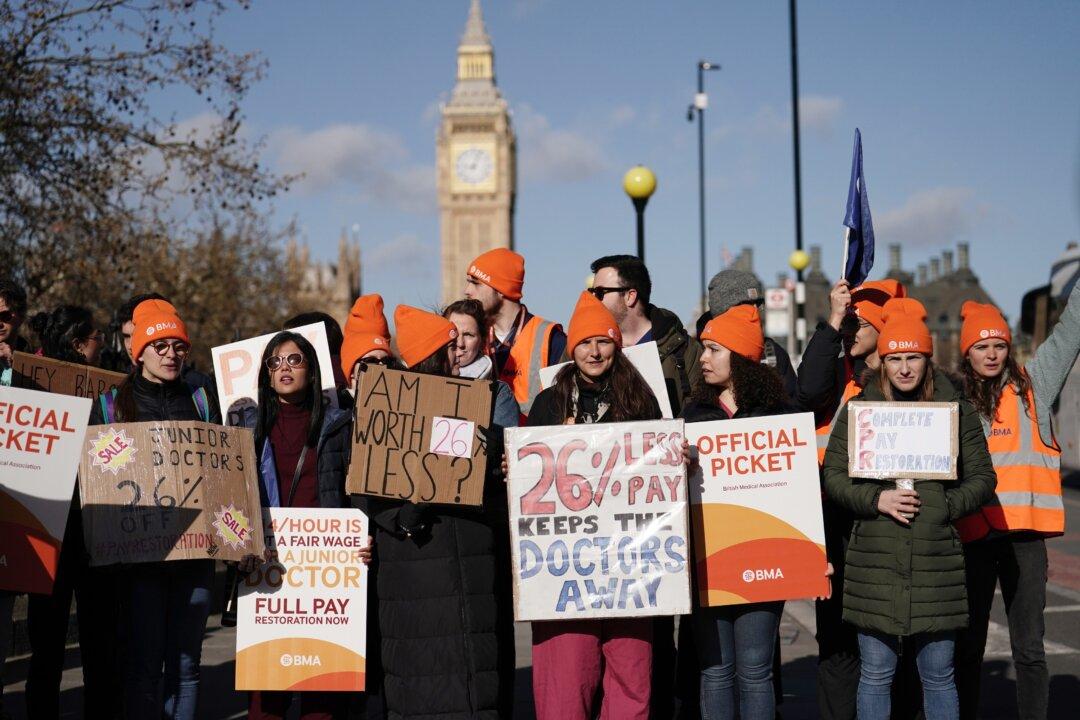A British doctors union has asked the conciliation service Acas to broker talks with the government amid the continuing junior doctors’ strike over a bitter pay dispute.
Junior doctors across England have entered the second day of their four-day strike, which is causing serious disruption to the National Health Service (NHS).





